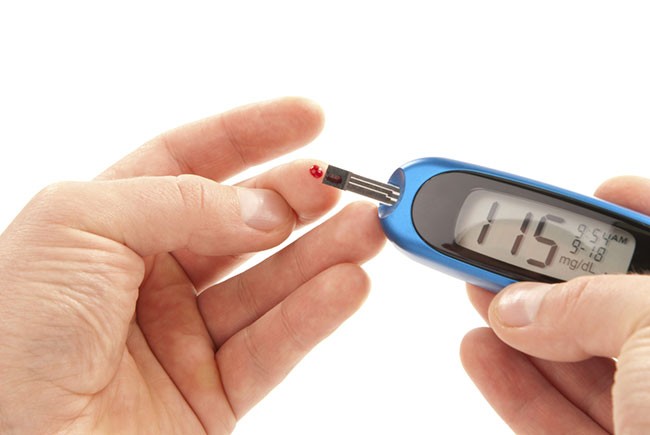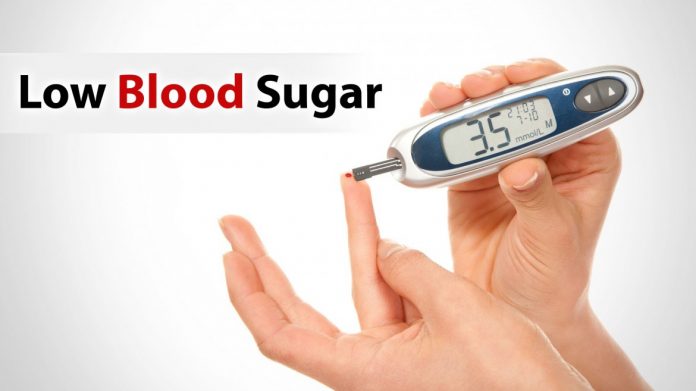Low blood sugar or Hypoglycemia is a common problem among people suffering from diabetes. It can occur even when you are managing your condition carefully. Hypoglycemia occurs when the amount of blood glucose drops to a level that is too low to sustain the normal functioning it is usually defined as a blood sugar level below 70 mg/dl. The problem of low blood sugar is common among those who take insulin. Read more Symptoms of Low Blood Sugar
The fall in blood sugar level can lead to short-term complications, like dizziness and confusion along with more serious complications in the long run. It can even lead to death if not treated properly.
Table of Contents
Low Blood Sugar Symptoms
To prevent the adverse effects of hyperglycemia, it is important to know about its symptoms. Most importantly, make sure to monitor your glucose levels and treat the problem as soon as you come to know about it.
Here is a list of initial and common symptoms of low blood sugar to help you be conscious and cautious to maintain controlled levels for a better life.
-
Feeling of anxiety
When the blood sugar level drops, your body informs the adrenal glands to release the epinephrine, which signals the liver to make more sugar. The excess epinephrine creates an “adrenaline rush” thus making you feel anxious.
-
Voracious Hunger
Another symptom of low blood sugar is feeling hungry even after eating or feel as if you’re starving suddenly. Such symptoms indicate that your body needs more glucose.
-
Sweating
This symptom is controlled by the autonomic nervous system and is, generally, one of the initial symptoms of low blood sugar. The excessive perspiration occurs without warning, irrespective of the external temperature levels.
-
Emotional Instability
 Emotional instability and mood swings are not a part of the normal behavior. They fall under the neurological symptoms of hypoglycemia. Such actions include hysterical or random crying, irritating outbursts, uncontrollable anger, and a strong urge to be left alone. Mild mood swings, which are not so severe, like general irritability or getting annoyed easily, can also indicate a drop in the blood sugar levels.
Emotional instability and mood swings are not a part of the normal behavior. They fall under the neurological symptoms of hypoglycemia. Such actions include hysterical or random crying, irritating outbursts, uncontrollable anger, and a strong urge to be left alone. Mild mood swings, which are not so severe, like general irritability or getting annoyed easily, can also indicate a drop in the blood sugar levels.
-
Shakes and Tremors
Unbalanced glucose levels in the blood can make the central nervous system to malfunction. Consequently, it releases catecholamines, chemicals that induce glucose production and also produce these symptoms.
-
Dizziness and Light-headedness
If you go through these common symptoms of low blood sugar, pay attention to them and treat them at the earliest. Dropping blood sugar levels might cause you to even faint. Therefore, if you find yourself in a dizzy condition, better lie down or sit to prevent yourself from injuring yourself.
-
Slurred Speech
The sugar starved brain might not allow the mind to notice any change in your speech. However, others will notice a difference. To others, you might seem or sound as if you have had too many cocktails, even though you haven’t touched a drop.
-
Vision problems
If you see a double image or the vision suddenly becomes blurry, it might be because if low blood sugar. So, next time you experience blurred vision, don’t ignore or take it lightly.
-
Wandering thoughts
The human brain is very sensitive to a fall in the level of glucose. Therefore, low blood sugar can be indicated by a sense of confusion and incapability to concentrate on one thing at a time, even in simple situations.
-
Restlessness at Night
Nocturnal hypoglycemia, quite common among many people, can be a cause for numerous sleep disturbances. The symptoms include nightmares, night sweats, episodes of waking suddenly and crying out, and feelings of confusion and unrest upon waking. To handle this, try to have some snack before bed to reduce the severity and frequency of sleep disturbances.

